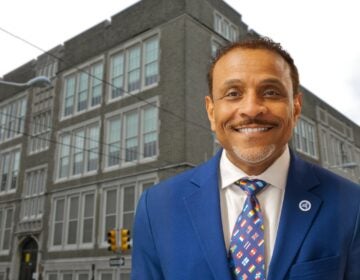Swarthmore College students launch new sit-in for divestment
-
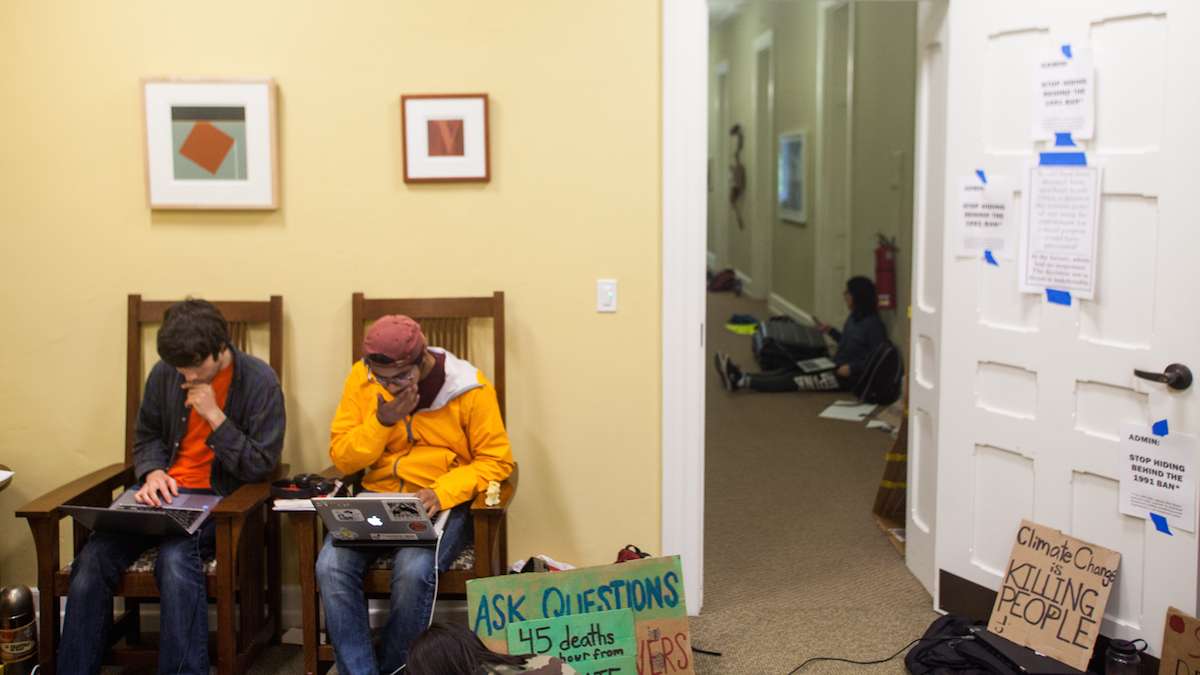
Swarthmore College students gather near the office of the president during day two of a sit-in to call for an end to the college's investment in fossil fuels. (Brad Larrison/WHYY)
-
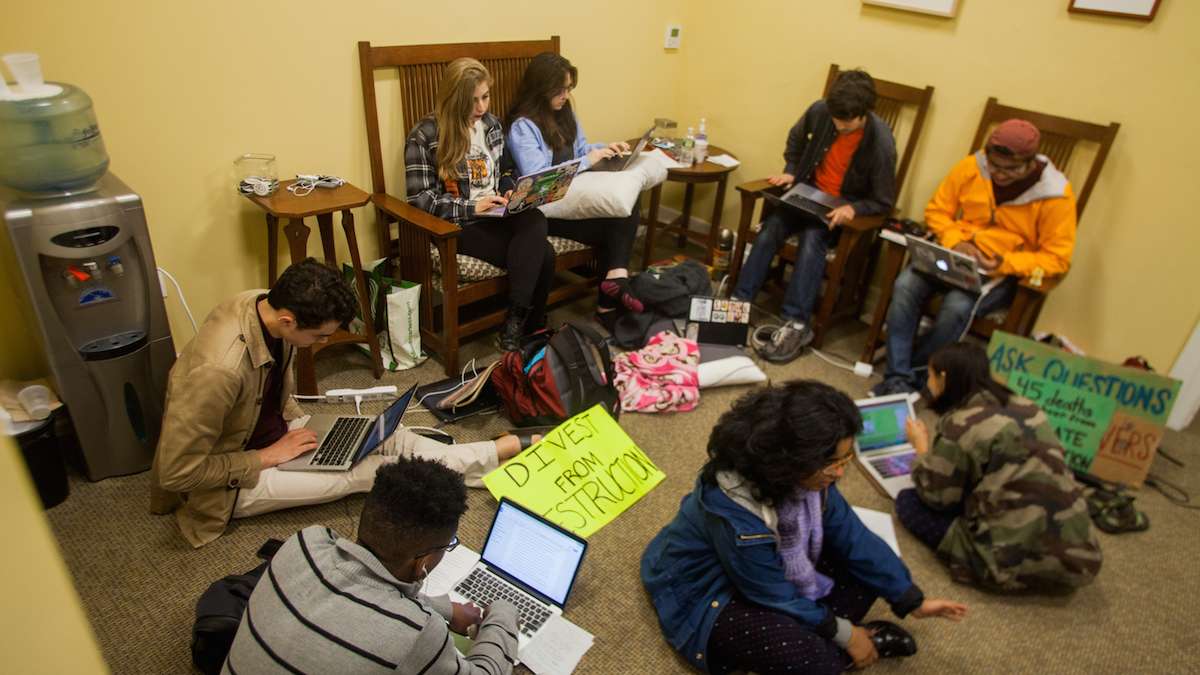
Swarthmore College students gather near the office of the president during day two of a sit-in to call for an end to the college's investment in fossil fuels. (Brad Larrison/WHYY)
-
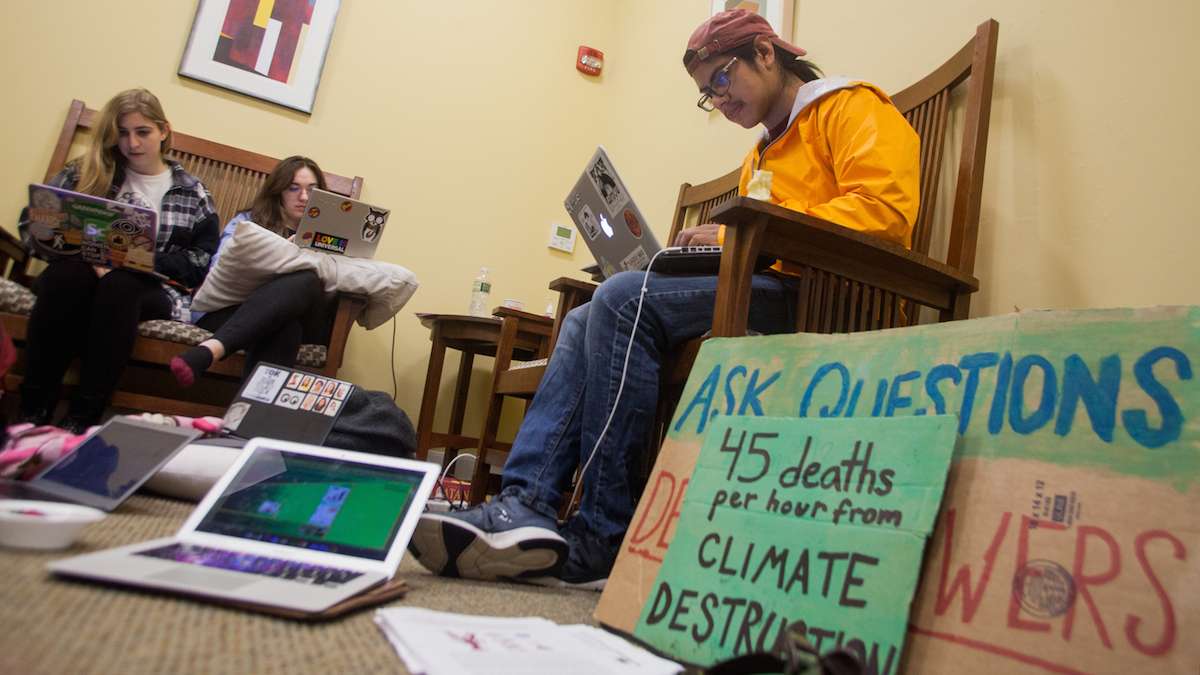
Swarthmore College students gather near the office of the president during day two of a sit-in to call for an end to the college's investment in fossil fuels. (Brad Larrison/WHYY)
-
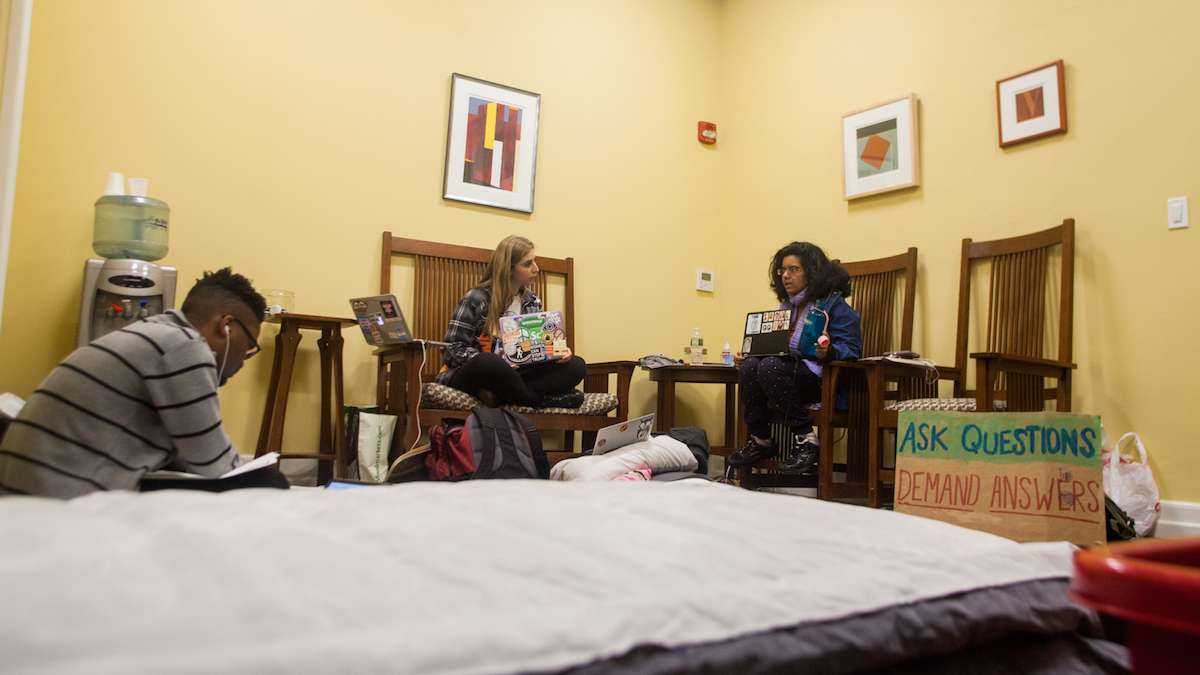
Swarthmore College students gather near the office of the president during day two of a sit-in to call for an end to the college's investment in fossil fuels. (Brad Larrison/WHYY)
-
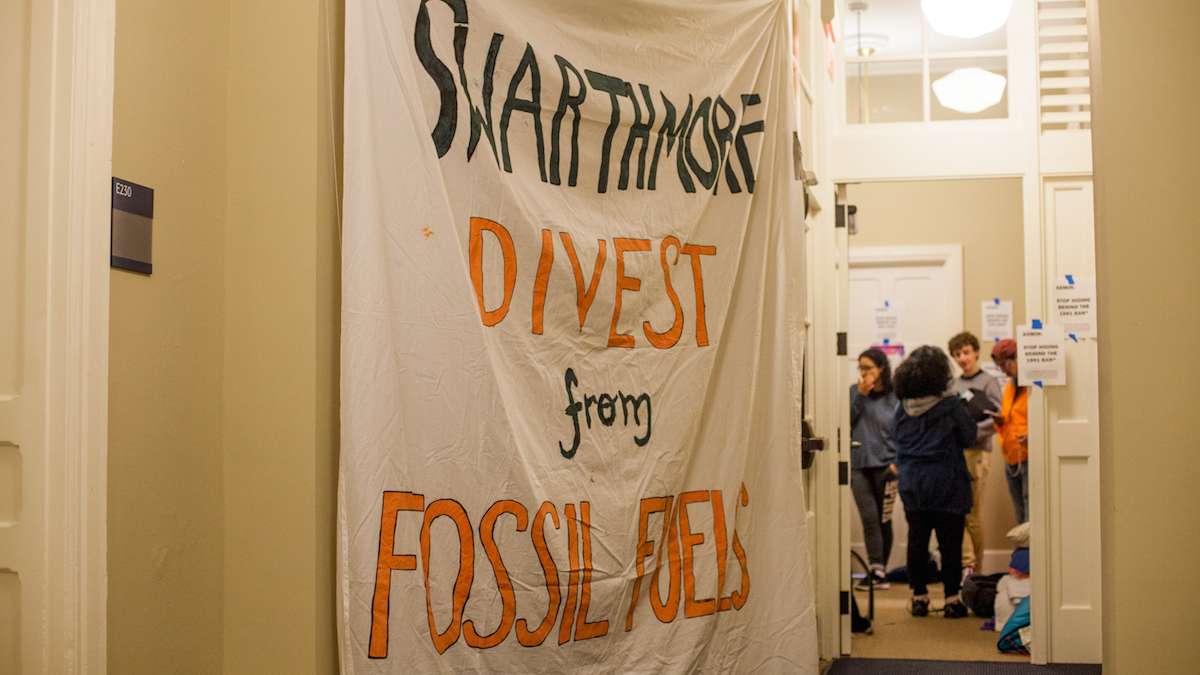
Swarthmore College students gather near the office of the president during day two of a sit-in to call for an end to the college's investment in fossil fuels. (Brad Larrison/WHYY)
-
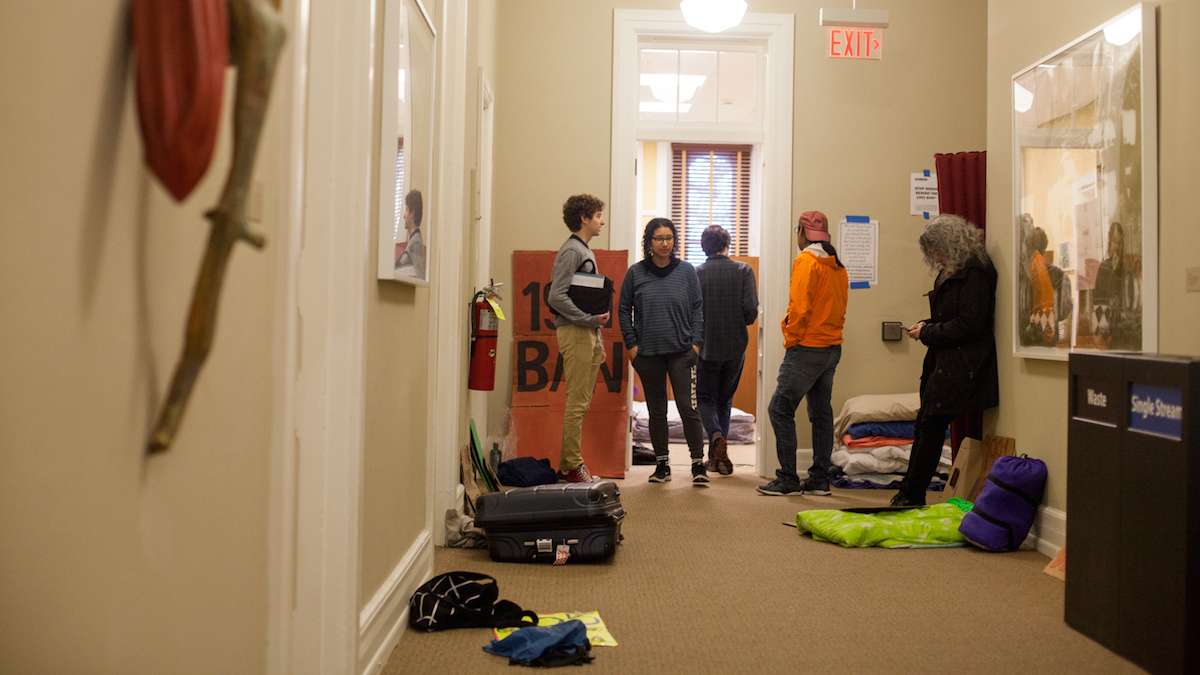
Swarthmore College students gather near the office of the president during day two of a sit-in to call for an end to the college's investment in fossil fuels. (Brad Larrison/WHYY)
This time of year on most college campuses, students are staying up cramming for finals, but at Swarthmore College some students are losing sleep for a different reason.
Since Monday, they’ve been holding a sit-in outside the President Valerie Smith’s office to protest the college’s investment in fossil fuels.
Students worked on their laptops and sat among sleeping bags and air mattresses in the hallway.
The group Swarthmore Mountain Justice says the administration is using a 1991 policy against making investment decisions based on social concerns as an excuse not to divest. (The group got its name from an earlier campaign to get the college to divest from companies involved in mountaintop-removal mining in Appalachia.)
Swarthmore enacted the policy after a successful campaign to divest the school’s holdings in South Africa in protest of apartheid. The college in Delaware County now has an endowment worth $1.8 billion.
Freshman Will Marchese, one of the sit-in organizers, says the ban goes against the college’s Quaker heritage of social justice.
“There is a moral obligation to divest, and that the 1991 ban on using the endowment for any social purpose is completely in contradiction with the college’s values,” he said.
A student referendum and a faculty resolution earlier this year sought a compromise — the partial divestment from fossil fuel stocks and companies.
The Board of Managers considered divestment “on a full or partial basis” in 2015 but decided not to do so. The students made the request for partial divestment a few times, including at a discussion with administrative leaders Friday.
Earlier this year, a student referendum voted for partial divestment, and school administrators sent an e-mail response, reiterating the board’s stance not to divest full or partially: “That decision stands, but the subject of climate change is of ultimate and deep concern to us.”
Swarthmore Mountain Justice started the fossil fuel divestment campaign in 2010.
They held a 32-day sit-in two years ago and a one-day sit-in earlier this year. After the student government sponsored forum on divestment and sustainability last week, members of the Mountain Justice group felt “frustrated” with the administration “refusing to engage” and decided to host this sit-in to demand answers.
Freshman September Sky Porras, a Mountain Justice coordinator, sees these events as part of a long-term campaign.
“We’ve also done things like rallies. We’ve done forums. We’ve done resolutions, debates. We’ve done referendums. We’ve gone through a lot of different paths,” she said. “We see that the South African apartheid divestment campaign, which is the one that like pushed for them to finally divest…that went on for 11 years, and they went through all of the loops and the jams that we’ve had to go through and they didn’t give up and they still campaigned.”
Aurora Winslade, college director of sustainability, says all agree climate change must be confronted.
“When we talk about our sustainability efforts what we’re trying to do is find common ground and we think there is a lot of it,” she said. “We can’t agree on everything and there is space for disagreement as well.”
She says sustainability efforts include a carbon charge — assessing a fee on the amount of carbon emissions generated at the college and then using those fund to help reduce those emissions.
A green fund is also available for donors who want to give to the endowment but don’t want their money invested in fossil-fuel companies.
Porras says sustainability efforts can work with fossil fuel divestment instead of being pitted against each other.
“Yeah sustainability and the green fund, they’re important steps, but they’re important steps along with having divestment,” the 18-year-old said. “I think that the administration and the board is very much using these steps to eradicate the possibility of divestment. They’re saying, ‘Oh well we’re doing this other green thing, we don’t have to do this’ instead of saying like, ‘We’re doing this and we’re on the way to divestment.'”
Winslade says the campus is place where diverse viewpoints are celebrated.
“Sustainability and climate change require a diversity of solutions. There is no one magic bullet that’s going to solve the challenges in front of us,” she said.
The sit-in is planned for the “foreseeable future.” The college’s classes end on Friday and the residence halls close May 12 for underclassmen.
WHYY is your source for fact-based, in-depth journalism and information. As a nonprofit organization, we rely on financial support from readers like you. Please give today.



